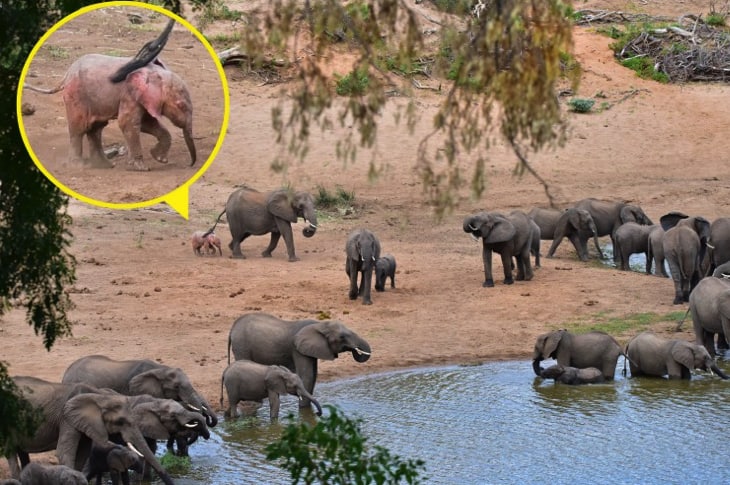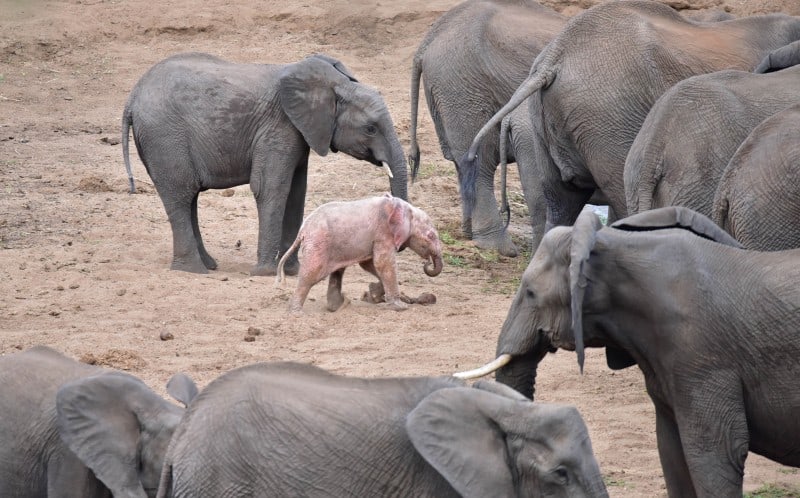
Tourist and photographer Nicki Coertze recently visited Kruger National Park, a large game reserve in South Africa, with his family when he saw the most spectacular thing: a tiny ‘pink’ elephant, something he had never seen in his life. Coertze stated that he has visited Kruger many times before, spending as many as 30 days every year there, and since neither he nor his friends had ever spotted one that this seems to have been a rare encounter.
While it may be rare, occurrences like this are becoming increasingly common with the uptick in tourists and with some growth in population in certain elephant herds. There are many herds that live inside the reserve because it’s so huge, at 7,523 square miles, and the pink elephant sightings have risen in the last two decades. Coertze recalled the encounter and told Caters News Agency,
“We were watching the elephants drinking at the Shingwedsi River when we noticed the albino elephant calf…. I was really hoping the pink elephant would play in the water a bit, and wash all the dirt off, so we could see him in all his pinkness.”

Whether or not the tiny elephant was actually albino is up for debate, as only one in every 10,000 mammals is born with albinism and this is about the third albino-looking baby seen in the last 12 years. The first reported sighting at this particular park in 35 years occurred in 2005, when Odette Joubert sat down for breakfast one morning and spotted the pink baby. Doctors could not confirm if this baby was albino, as similar conditions exist for a leucistic animal, which is when the animal experiences a loss of pigmentation but can darken over time.
In 2006, another pink baby elephant was spotted by a couple, George and Iris van Rensburg, far away from where the first one was seen, making it unlikely that it was the same elephant or that their mothers are related. Based on the photo taken by the couple, Kruger’s elephant expert Dr. Ian Whyte said that the baby looked like a true albino, which is extremely rare but also incredibly dangerous.

Albino elephants face huge health problems because their lack of pigmentation makes the sun extra harsh on their bodies and the fact that most albinos go blind; Whyte said that an albino elephant will likely not make it into adulthood and that there’s a chance that the herd will abandon an albino because their light skin makes their herd easier for predators to spot. Since the majority of these sightings of pale elephants happens during their adolescence, there remains the question of their survival, although with leucistic elephants their pigment darkens with time and would be less identifiable in adulthood.
While this is sad, there is a chance for the animal if they have leucism rather than albinism, and Coertze said that this one didn’t seem to have a problem integrating itself with the herd. He told Caters News Agency,
“As far as the rest of the herd was concerned they seemed to just accept him in their stride.”


